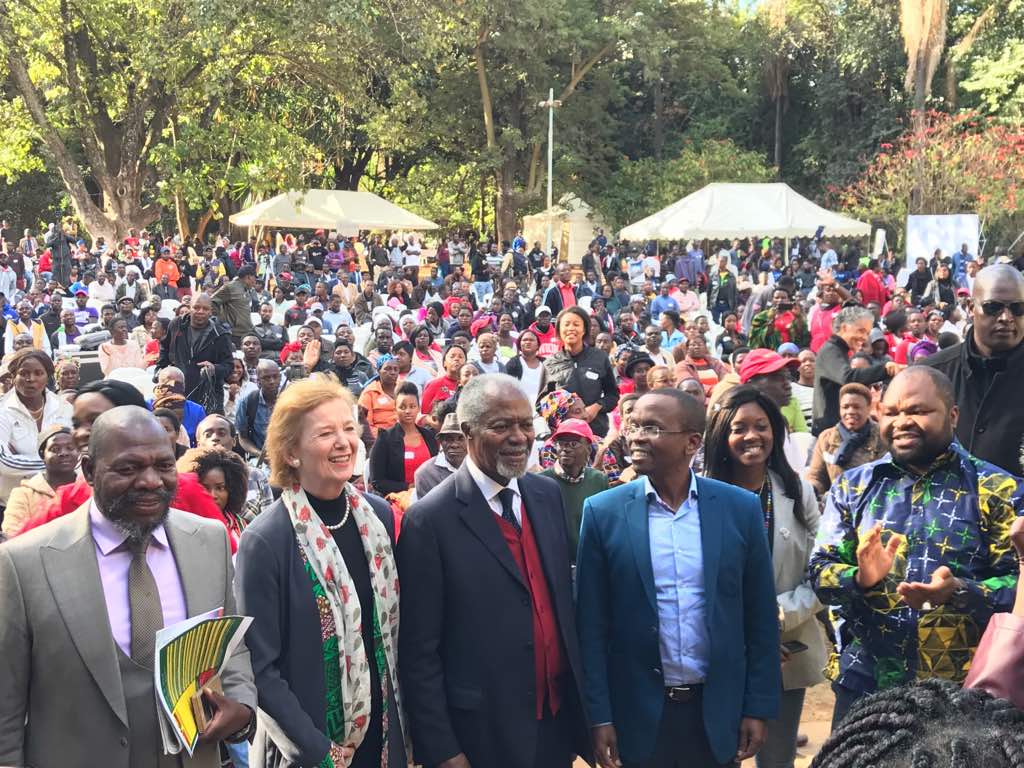Regional solidarity platform, the Zimbabwe Solidarity Forum (ZSF) which is based in South Africa, has warned the relatively peaceful environment ahead of the 2018 harmonised elections in the country could be a “shallow cover” for democratic deficits.
The ZSF is made of South African trade unions, church groups and civil society organisations, eminent academics and social justice activists, and Zimbabwean Diaspora groups in the neighbouring country.
The ZSF sent a 10-member delegation of experienced peace and repression monitors which carried out an assessment of the electoral environment between July 3 and July 12, 2018, mixing and mingling with ordinary people across the country ahead of the election scheduled for Monday, July 30.
As a follow-up to its concerning findings, the ZSF has picketed the Zimbabwean Embassy and Consulate in Pretoria, calling for a genuinely free and fair election, demilitarisation of the Zimbabwe Electoral Commission (ZEC) and adherence to the SADC principles and guidelines governing democratic elections.
Similar protest actions have been done at the Zimbabwe Consul in Cape Town, Gaborone in Botswana and Lusaka in Zambia between July 18 and 19.
“In many respects the 2018 election appears to be more free and fair than any other election that has come before it,” said ZSF in a dispatch to regional stakeholders on Friday, July 27, 2018.
“But this appearance might also still be revealed as a shallow cover up for deeper electoral concerns.
“The gradual heightening of tensions as the election approaches, and the multiple local incidents of intimidation and violence, create a climate that is volatile and unpredictable.”
The ZSF the criticised in the militarisation of the ZEC as a factor that affected the credibility of the forthcoming election.
“The militarisation of ZEC undermines the credibility of the election not least because of the role that the military has played in the body politic of Zimbabwe since independence.
“An electoral commission run by the military that includes people directly involved in endorsing the 2008 election cannot claim the impartiality and non-partisanship so essential in an election process,” said ZSF.
““There is a rising tide of civic and political voices raising legitimate concerns about the upcoming plebiscite. Denied the vote by the Electoral Commission diasporian Zimbabweans are working with solidarity activists to make sure their concerns are heard,” said the regional grouping.
The ZSF said it was worried by concerns raised about ZEC and serious allegations of intimidation and violence.
Calling the forthcoming harmonised election “pivotal” for Zimbabwe’s future, the ZSF called upon the SADC, particularly the Electoral Advisory Council, to ensure that Zimbabwe holds free and fair elections.
“The solidarity movement believes the Zimbabwean government, the people of Zimbabwe, the SADC Organ on Defence Politics and Security Cooperation and the SADC Electoral Advisory Council have a shared responsibility to ensure that this election advances the regional democratisation agenda and provides a solid platform for a political and economic renewal,” said ZSF.
“Ensuring that ZEC is empowered, independent and credible in the eyes of all contesting parties will go a long way in this regard.
“The legitimacy and integrity of ZEC is also dependent on the level of transparency it demonstrates around the election management process.”
